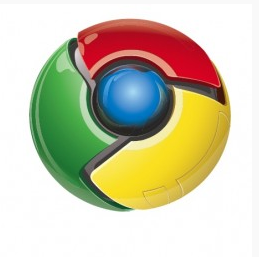Microsoft Says Google Chrome Steals Your Privacy
Microsoft has hit out at Google's Chrome browser, claiming that it doesn't respect users' privacy.
Microsoft recently posted a video called "Google Chrome Steals Your Privacy" to its TechNet Website. The video explained why Microsoft didn't trust Chrome's privacy and used Internet Explorer 8 as a comparison.
The video has since disappeared but not before Ars Technica saw it and dissected the accusations made. Ars reports that the main accusation Microsoft makes is that Google's move to consolidate both the search and address bar means more of your information is being sent to Google. IE8, on the other hand, keeps these separate and sends less of your information to the search provider.
"As I start to type an address into the address bar, Fiddler [a Web debugging proxy] shows that for nearly every character I type, Chrome sends a request back to Google," Ars cites IE product manager Pete LePage as saying. "I haven't even hit enter yet to load the website and Google is already getting information about the domain and sites I'm visiting."
Next LePage shows us how different things look when you do the same thing using Internet Explorer 8. He begins to type the same address into the URL bar and sure enough, nothing is sent to Microsoft until he presses enter.
Ars Technica's Emil Protalinski writes that the way LePage worded his first argument presents a problem.
"LePage makes an important mistake in his accusation against Google: his statement should not be "Chrome sends a request back to Google" but it should be "Chrome sends a request back to the search provider." He makes this distinction with IE8 but does not with Chrome. The information is being sent so that the search provider can help the user choose a query right in their browser."
Protalinski goes on to say that after downloading Fiddler, it became apparent that Chrome could also be set to send that information to Bing. Not only that but the same "sending information on every keystroke" behaviour is only true for the address bar.
Get Tom's Hardware's best news and in-depth reviews, straight to your inbox.
"As we suspected, Chrome can be set to send information on every keystroke to Bing (or any other search engine that supports Search Suggestions) instead of Google. The same behavior occurs in IE8, but only in the search bar. LePage is only correct in his assertion that IE8 does not send information to anyone when the user types into the address bar."
[EDIT] Some kind soul has uploaded the video to YouTube. Check it out for yourself below.
[Update] Have added a video highlighting all the ins and outs of Google Chrome privacy.

Jane McEntegart is a writer, editor, and marketing communications professional with 17 years of experience in the technology industry. She has written about a wide range of technology topics, including smartphones, tablets, and game consoles. Her articles have been published in Tom's Guide, Tom's Hardware, MobileSyrup, and Edge Up.
-
zoemayne their just jealous google survived the hackathon. IE is the most unprivate browser b/c its widely used and literally every version has been hacked. Same goes for the OS.Reply
Their so silly for removing the video anything that gets put on the internet is permanent. -
hispeed120 I like Firefox + AD Block + NoScript. Works beautifully for me. In addition, Firefox has the same thing as inPrivate browsing, just a different name. I guess that IE8 could be good for people who don't want to download 3rd party plugins (mentioned above), but honestly, I think the majority of people here enjoy the personal customization of their software.Reply -
cryogenic Actually this is the reason I don't use Chrome, I don't feel like being spied 24/7 by Google, no matter how much I like them. Firefox for the win!Reply -
zoemayne jmeNdriksActually, I kinda like how chrome predicts what you're searching for. It's convenient.autocomplete does not require sending data back and fourthReply -
dman3k hispeed120I like Firefox + AD Block + NoScript. Works beautifully for me. In addition, Firefox has the same thing as inPrivate browsing, just a different name. I guess that IE8 could be good for people who don't want to download 3rd party plugins (mentioned above), but honestly, I think the majority of people here enjoy the personal customization of their software.I rather use Firefox and Opera than Chrome or IE. Webkit also has a history of security flaws. IE's history is just that they're more widely used. Webkits is worse in terms of number of flaws/holes.Reply
-
Mysticsae I saw this yesterday. The video failed to mention that when you use the search bar in IE8 it does the same exact thing. It also failed to mention that it doesn't send requests to Google in specific, it sends them to whatever your default search provider is. Very pathetic attempt to glorify your terrible browser Microsoft.Reply -
gpj zoemayneautocomplete does not require sending data back and fourthReply
Huh? We're not talking about autocomplete based on YOUR prior searches (which of course should be cached on your local pc).
The article talks about "Search Suggestions" which of course needs to send the data to the search provider since the suggestions are based on what other users searched for based on the partial string already typed into the search field.
I for one have come to appreciate the feature, but have no interest in Google (or anyone else) knowing what I type into my address bar to visit sites directly.
I'm with MS on this one .. what you type into the address bar is none of their business.


